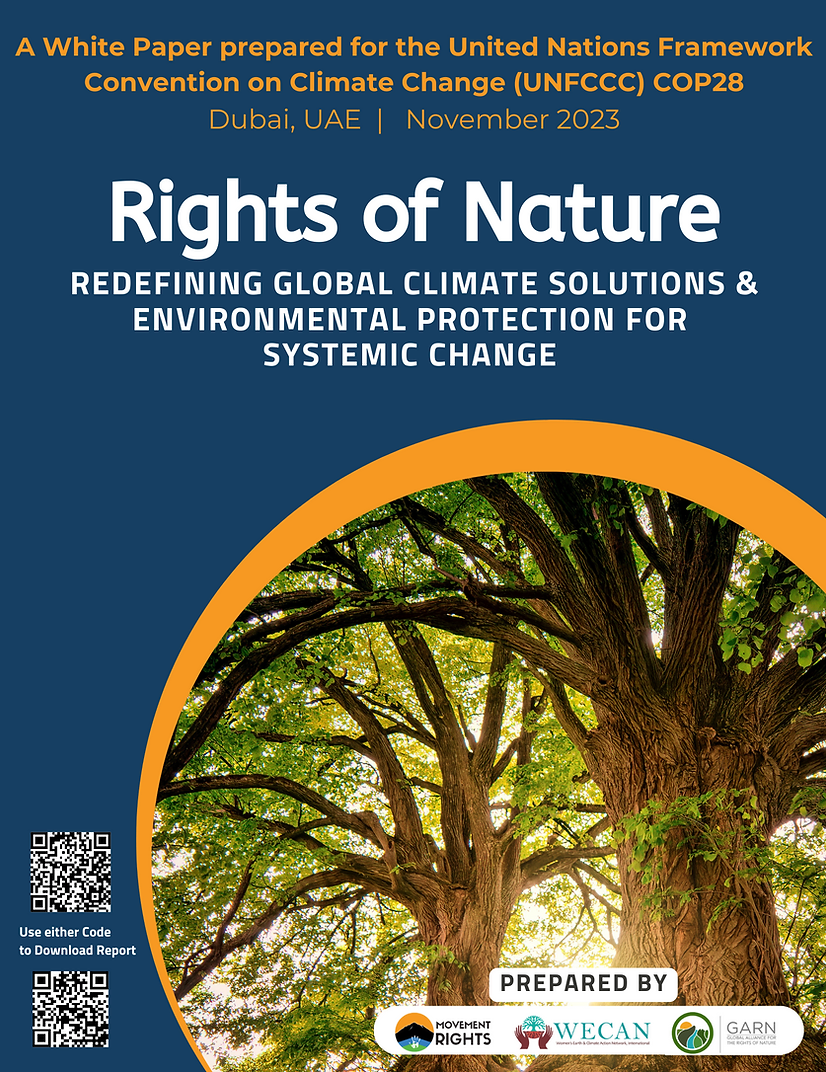
In a historic move at the UN Climate negotiations in Dubai, the Global Alliance for the Rights of Nature (GARN), in collaboration with Women’s Earth and Climate Action Network (WECAN) and Movement Rights, has released a groundbreaking white paper on the Rights of Nature at COP28. Titled “Redefining Global Climate Solutions & Environmental Protection for Systemic Change,” the report was launched at a press conference in Dubai, featuring influential speakers such as Ponca elder and Movement Rights’ board chair, Casey Camp Horinek, Nnimmo Bassey, director of the Health of Mother Earth Foundation, Nigeria, and Osprey Orielle Lake, WECAN Executive Director.
The report outlines the power of Rights of Nature as a transformative force in addressing climate change, emphasizing its role as a legal tool for tribes and local communities to influence national policies. Largely Indigenous-led, the Rights of Nature movement has become one of the fastest-growing Earth Jurisprudence movements globally, with legal recognition in over 30 countries.
